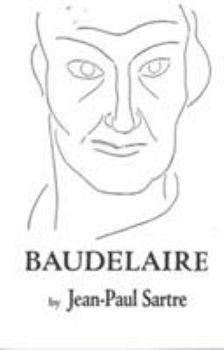Baudelaire: Critical Study
Select Format
Select Condition 
Book Overview
Sartre's study of Baudelaire is one of the more brilliant achievements of modern criticism. We may often disagree with his interpretations of the poet's personality, but we cannot fail to wonder at the mastery with which he presents his case. It is the case, quite patently, of an Existentialist who wishes to psychoanalyze a paramount literary figure in terms of his own beliefs.
Perhaps Sartre's greatest contribution to Existentialism has been his own personality. He made it a living philosophy, giving it his exotic imagination, his penchant for controversy, and above all his daring. He turned abstractions like Existence and Being, Freedom and Nature, into a theory of psychoanalysis, grounded in man's creativity and opposed to Freudian determinism. Then he put the theory into practice in this book on Baudelaire.
Baudelaire, man of shadows, opium-addict, dandy, frigid disciple of volupt?; and then the greatest lyric poet of the age. Sartre lays bare the "lunar landscape of this distressed soul." We see Baudelaire, with anguished intelligence, selecting and arranging his own evil destiny, juggling the values of a world at the turning point of modern times.






